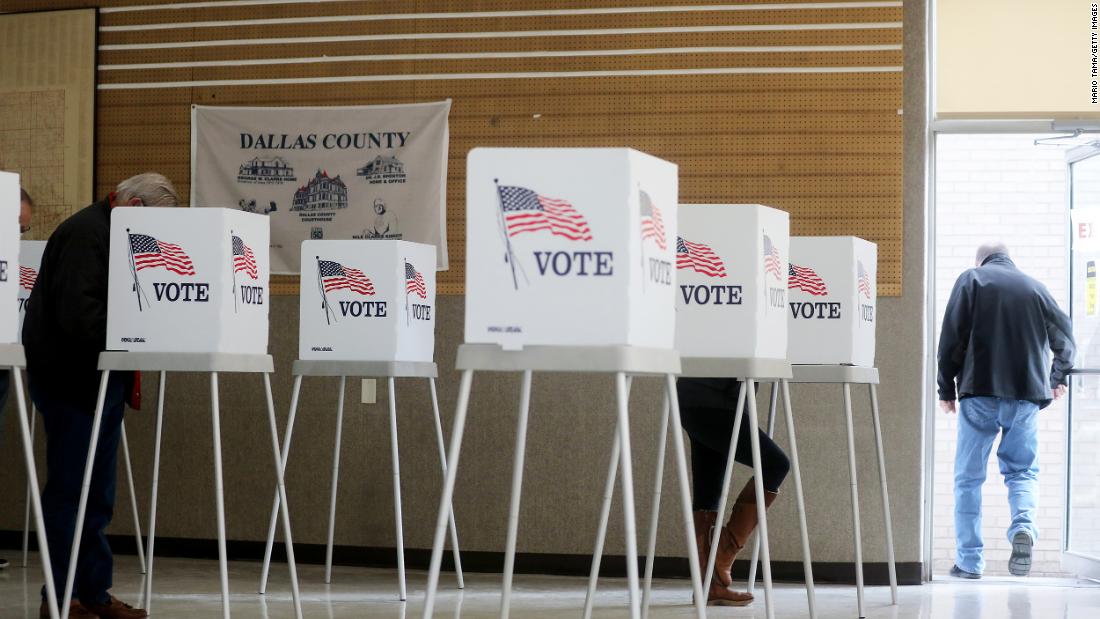
As law professors focused on election law and the law of democracy, we have spent more than 50 years combined following elections and election disputes. We know that no election is perfect, and that some problems will inevitably arise on November 3.
With commentators floating the possibility of a Constitutional crisis, a civil war, breaches in our electronic voting machines and other worst-case scenarios, hyper-vigilant voters and the media must be careful not to undermine our elections by giving excessive play to typical, Election Day problems or hastily spreading viral posts before the facts are verified.
In our polarized, frayed-nerves society, there's a serious possibility that minor issues will be blown out of proportion and cast in sinister terms, especially on social media. Our advice (to both voters and the media) is to slow down, take everything you see or hear with a grain of salt until it is fully vetted, and keep a balanced perspective on the problems that do emerge.
We can say with near-certainty given what has happened in past elections, for example, that there will be reports of an electronic voting machine "flipping" votes from Trump to Biden or vice versa. A voter will choose one candidate on the touch screen, but the machine will record it as selecting another. This is typically the result of a calibration error and can be easily fixed by rebooting the machine. But a grainy social media video of a vote flip from one candidate to another can feed into the worst fears of an organized effort to steal or hack the election.
Social media has also been rife with images of voters waiting in long lines. Even with record turnout during early voting, the demand on Election Day is likely to be huge. Election processes will be slower in many places thanks to social distancing and other efforts to protect people's health during the pandemic. Voters may also be held up in lines due to problems checking people in with electronic poll books that must communicate with an overloaded state voter-registration database.
Long lines are troubling, but it's important to remember that they do not necessarily mean that there is an intentional voter suppression plot at work. If anything, widespread images of long lines, presented without context, will likely deter lower-propensity voters, who might choose to stay home if they believe the process will take several hours.
We are most concerned about potential reports of violence or intimidation at polling places. We have seen some instances of this during the early voting period, but nothing widespread. The media will undoubtedly cover these incidents should they occur on Election Day and social media could be flooded with videos and accounts of nasty confrontations. If these problems are real, they should of course be flagged. But overblown coverage could create the impression that a few isolated incidents are widespread, causing more voters to avoid the polls than is warranted.
And this is a key point: Election Day coverage should avoid immediate, breathless reporting of every rumor or problem. Issues that do arise must be placed in the proper context, otherwise it could create the impression of pervasive chaos and end up depressing turnout. It will also smooth the path for those who might want to challenge the integrity of our election, and stoke suspicions that the results are illegitimate -- something many voters are already primed to believe.
To be sure, if genuinely serious problems emerge, they must be addressed and confronted. Our plea is not to ignore the facts or excuse deliberate efforts to suppress voting. It is to make sure stories about elections issues are properly vetted and reported accurately, with the proper context.
Remember, more than 75 million people have already voted early -- either in person or by mail -- with few problems thus far.
We understand that the country is living on a knife's edge. Americans are much more likely than they were three years ago to say that violence could be justified in pursuit of political goals. While violence is unlikely to break out, emotions are high on Election Day and irresponsible coverage can act like a match in a dry forest.
When we run into inevitable but fairly normal problems on Election Day, we hope voters and the media, in both producing and consuming information, will bear that in mind.
"Opinion" - Google News
November 01, 2020 at 07:15PM
https://ift.tt/2HJUtxD
Our biggest Election Day concern - CNN
"Opinion" - Google News
https://ift.tt/2FkSo6m
Shoes Man Tutorial
Pos News Update
Meme Update
Korean Entertainment News
Japan News Update
No comments:
Post a Comment